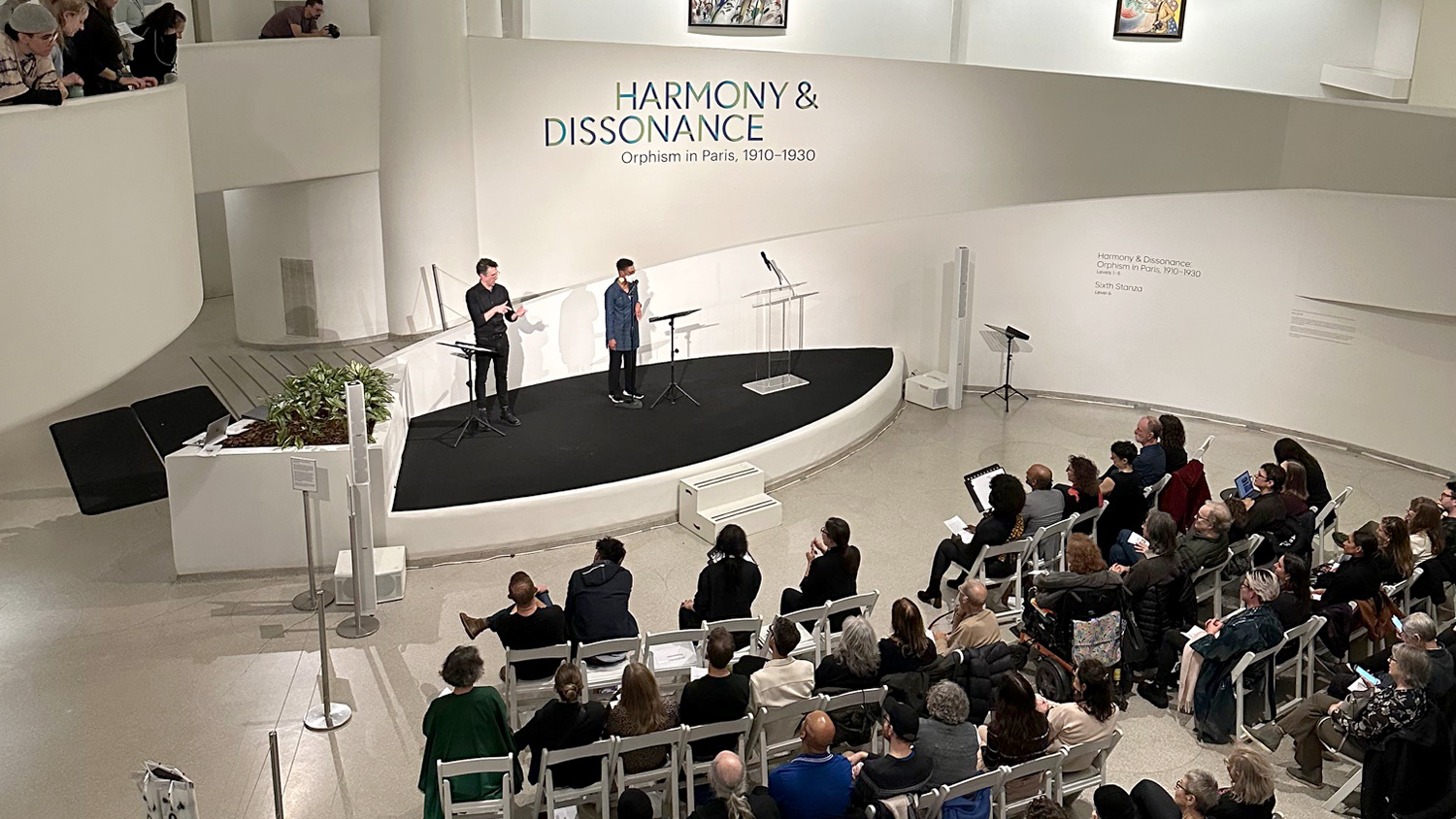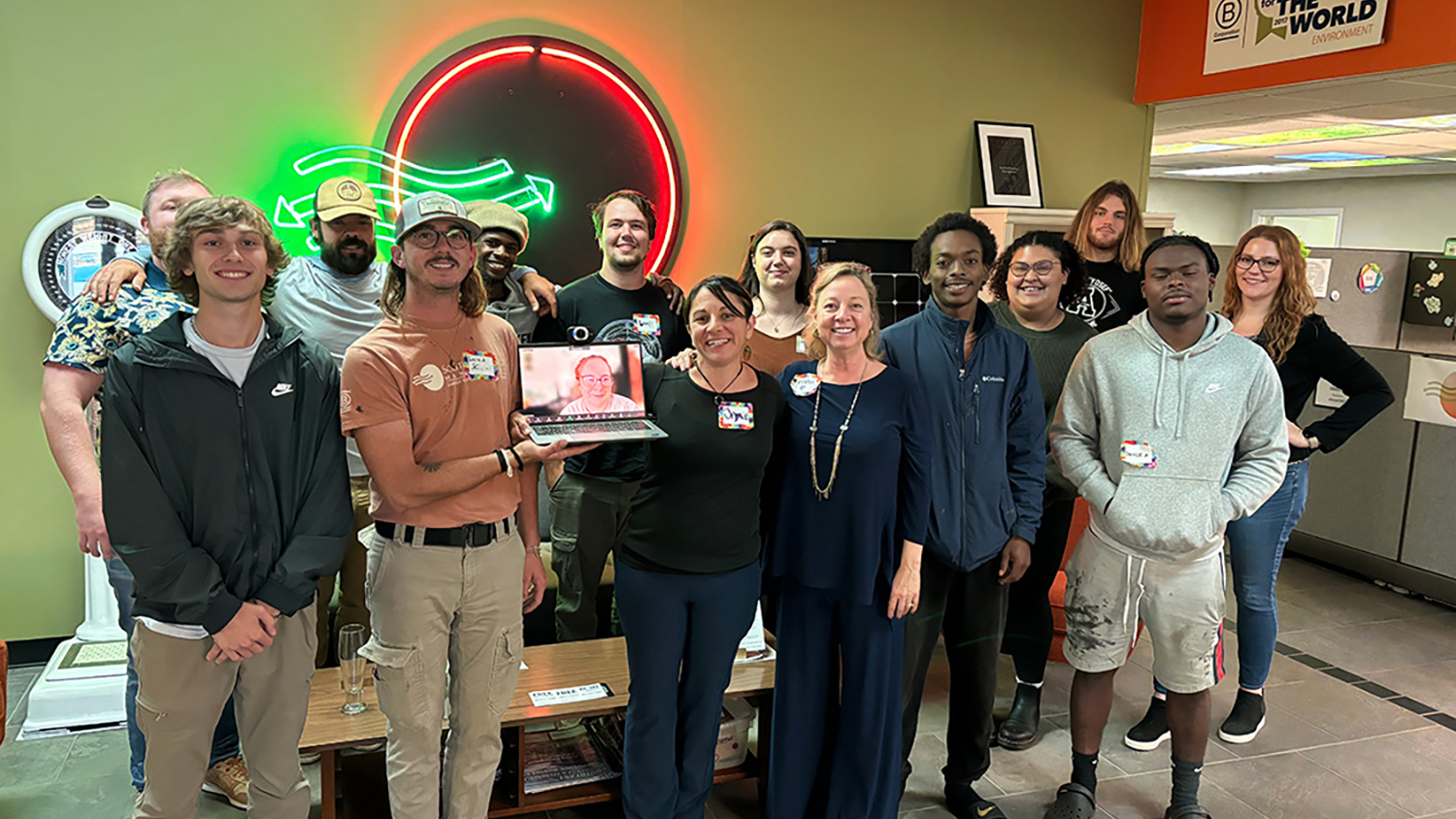Friends look to document, celebrate Hondros’ life

Greg Campbell first got to know Chris Hondros (CHASS ’92, English) when they were teenagers in Fayetteville, N.C. They went to the same high school, worked in the same restaurant and both had an interest in journalism — Campbell as a writer, Hondros as a photographer.
They went their separate ways in college — Campbell to UNC-Greensboro, Hondros to NC State — but managed to stay connected. As their professional careers unfolded, both found themselves covering conflicts and unrest in foreign lands, be it in Kosovo, Nigeria or Libya. Campbell wrote books and newspaper articles, while Hondros became an acclaimed photographer who was a finalist for the Pulitzer Prize.
“We never really fell out of each other’s lives,” says Campbell, who lives in Fort Collins, Colorado.
Mindful of his young family back in the United States, Campbell eventually pulled back from reporting in such dangerous places. Hondros, meanwhile, continued to travel from hot spot to hot spot. “He was hooked on foreign reporting,” says Campbell. “He saw it as a real calling in his life, to be a witness to these kinds of events and document them.”
In 2011, Hondros convinced Campbell to join him in Libya. Hondros was there documenting the uprisings connected to the Arab Spring, but he was also talking about pulling back a bit and starting his own family. “When I was there in Libya with him, I was really proud,” Campbell says. “He had developed into the elder statesman of conflict photographers. Everyone respected him, even his competitors. He was a master of his environment. He knew exactly what he was doing.”
Campbell had returned home to Colorado when he got the news that Hondros had been fatally wounded in a mortar attack in Libya. “My heart skipped a couple of beats,” Campbell says. “It seemed surreal. But it was followed by the unfortunate, sad realization that it was probably true. What he was doing was extraordinarily dangerous.”
Soon after Hondros’ death, Campbell learned something new about his longtime friend. Campbell was contacted by a man named Joseph Duo, a Liberian who had been the subject of one of Hondros’ most acclaimed and well known photographs. Hondros had photographed an exultant Duo, an armed combatant in the Liberian Civil War. The photo was nominated for a Pulitzer Prize.
But what Campbell learned was that Hondros had returned to Liberia a couple of years later and found Duo. The two had connected, and Hondros had agreed to pay for Duo to get a high school and college education. Thanks to Hondros, Duo would eventually finish law school.
It was yet another vivid illustration to Campbell of the impact that Hondros had on the lives of many, through his professional work as a photographer and the human connections he made around the world. Campbell felt that it was a story that needed to be shared with a larger audience.
And so he decided to make a documentary about his friend’s life and work. It was an idea that Campbell had toyed with when Hondros was alive, but he worried after Hondros’ death that his life would not be properly memorialized.
“No one else, frankly, was stepping up to do a film about him,” Campbell says. “I was a little bit concerned that interest in his life would fade away.”
One of the first challenges facing Campbell was how to pay for the film. Friends encouraged him to try Kickstarter, a “crowd-funding” company that gives people the ability to raise money for projects by soliciting donations online. Campbell was skeptical (“I had to be dragged kicking and screaming,” he says.), but eventually agreed to give it a try. He started with what he considered a modest goal of $30,000 in 30 days, enough to do some initial filming in Liberia with Duo and others. Within three days, the project had exceeded its $30,000 goal.
“It blew me away how quickly the money rolled in,” Campbell says.
So Campbell raised the goal to $55,000, enough to cover a trip to Iraq. Within 10 days, that goal was met, and Campbell realized he could be even more ambitious. The goal now is $100,000, and only a few days remain in the campaign. The new goal would enable Campbell to get the footage he needs in Libya, Iraq and Liberia.
Eric Scholfield, who runs an insurance agency in Raleigh, was one of the many who were happy to contribute to the project. Schofield also grew up in Fayetteville with Campbell and Hondros. He also studied at NC State with Hondros, and remained friends after college.

“We obviously want to preserve Chris’ legacy,” Schofield says. “Not only was he a gifted photographer, he was an absolutely amazing person. I would like for people to not only see some of his work, but also get a deeper understanding of who Chris was as a person.”
Campbell has been struck by the outpouring of support, financial and otherwise, for a film about Hondros. More than 500 people — from fellow photographers, other NC State alumni, friends and supporters — have contributed through the Kickstarter campaign. With just a few days remaining, Campbell hopes they can reach their goal of $100,000, even as he is mindful that even more money will be needed to finish the film.
“What I hope to do with this film is honor his life and his career,” Campbell says. “He was one of the greatest photographers of all time. He deserves it on that basis alone. But there is this underlying complexity to him. We’ve been flooded (with contributions) from people who knew Chris at some time and he made an impression on them.”
This article by Bill Krueger first appeared in NC State’s alumni blog, Red and White for Life.


